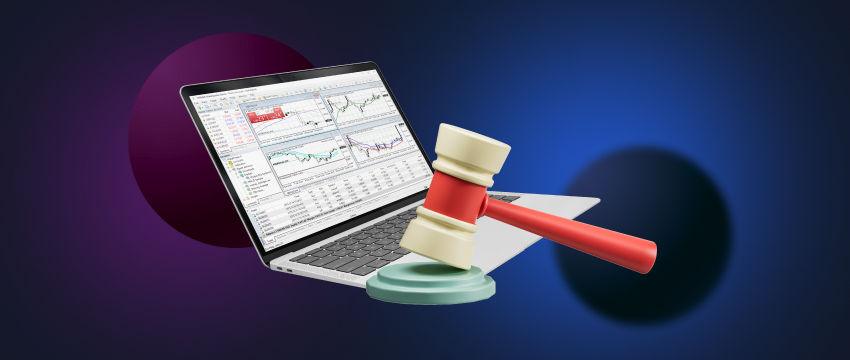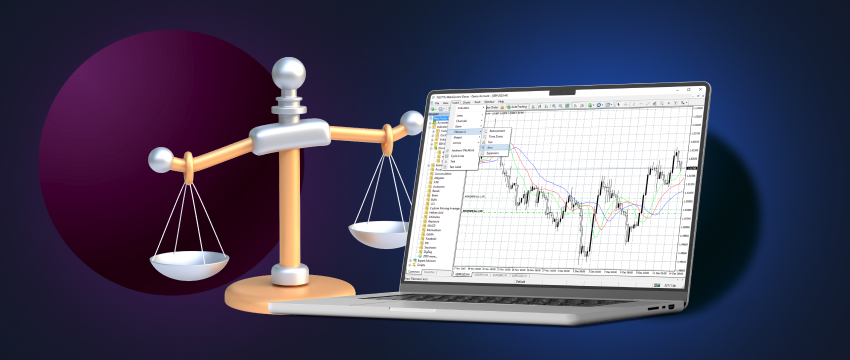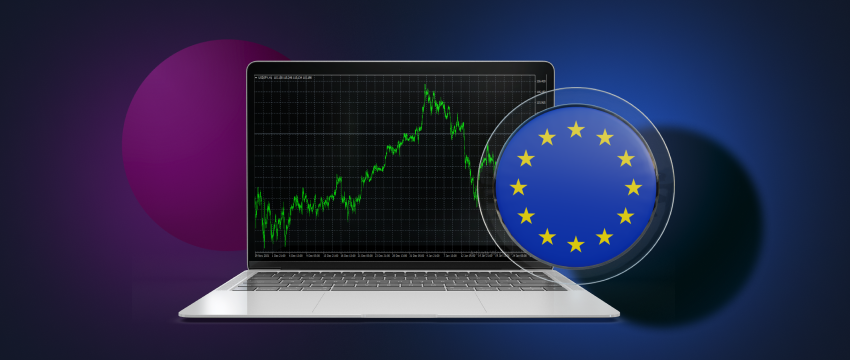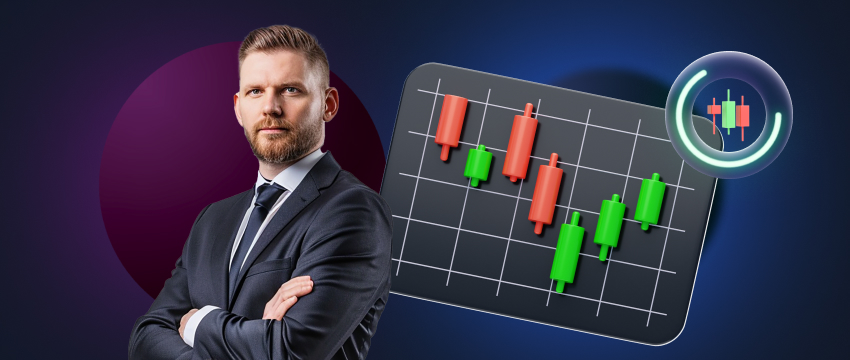CFD trading and CFDs are legal in many countries within the European Union (EU) but not all. The national competent authorities in each EU member state heavily regulate them, and they enforce strict restrictions following intervention measures by the European Securities & Markets Authority (ESMA) for retail clients adopted on 1 August 2018.

A closer look at the ESMA intervention measures
The measures adopted by ESMA in respect of CFDs included “a restriction on the marketing, distribution or sale of CFDs to retail investors. This restriction consists of leverage limits on opening positions; a margin close-out rule on a per-account basis; a negative balance protection on a per-account basis; preventing the use of incentives by a CFD provider; and a firm-specific risk warning delivered in a standardised way.”
Additionally, the “product intervention measures ESMA adopted under Article 40 of the Markets in Financial Instruments Regulation included:
- Leverage limits on the opening of a position by a retail client from 30:1 to 2:1, which vary according to the volatility of the underlying:
- 30:1 for major currency pairs
- 20:1 for non-major currency pairs, gold, and major indices;
- 10:1 for commodities other than gold and non-major equity indices;
- 5:1 for individual equities and other reference values;
- 2:1 for cryptocurrencies;
- A margin close-out rule on a per-account basis. This will standardize the percentage of margin, requiring providers to close out one or more open CFDs for retail clients when it reaches 50% of the minimum required margin.
- Negative balance protection on a per-account basis. This will provide an overall guaranteed limit on retail client losses;
- A restriction on the incentives offered to trade CFDs; and
- A standardized risk warning, including the percentage of losses on a CFD provider’s retail investor accounts.”
Despite the stringent regulatory framework in place, CFD trading remains popular in EU countries where it is permitted. Let’s explore the reasons behind this popularity.

What is the appeal of CFD trading?
1. Speculative
A contract for difference is a speculative financial instrument. A broker and a trader enter into this contract, allowing the trader to speculate on the price movement of the underlying asset. The trader does not take ownership of the asset. Instead, he or she merely attempts to profit off its price movement. This does present certain benefits, like not having to concern oneself with ownership costs such as storage, insurance, or maintenance.
2. Going long or short
Additionally, a CFD trader also speculates on rising and falling markets, serving as the basis for deciding whether to go long or short. What does this mean in practice though?
Going long
- When a trader goes long on a CFD, they are usually purchasing a contract in anticipation that the price of the underlying asset will go up.
- If the asset’s price does rise, the trader typically sells the CFD at a higher price, thereby making gains on the price difference.
Going short:
- When going short, the trader typically sells the CFD with the anticipation that the price of the underlying asset will decline.
- If the asset’s price does decrease as expected, the trader can buy back the CFD at a lower price, thereby earning a profit on the price difference.
3. High liquidity
CFDs are notorious for their high liquidity.
This implies that they can often be traded quickly and easily, with a narrow spread and minimal slippage. This is great for short-term traders who depend on fast trade execution and tight spreads to maximize profitability. However, even though CFDs offer this level of liquidity, the same may not be said for their underlying assets (e.g., commodities, currency pairs, stocks, metals, indices, etc.).
Traders should be mindful of the liquidity of both the CFDs and the underlying assets to safeguard their capital and mitigate risk more efficiently.
4. Highly leveraged financial instruments
CFD traders are renowned for using leverage to engage in CFD trading. This enables the trader to manage larger positions with a smaller amount of capital. As a result, profit may be significantly magnified. However, leverage also increases the likelihood of substantial losses.
Markets are volatile and unanticipated price movements may see you lose money within seconds if proper risk management measures aren’t in place. If a margin call is triggered, indicating that the trader’s account has fallen below a certain threshold, the trader will be prompted to either deposit additional funds into their account or close open positions to reduce risk.
If the trader fails to meet the conditions of the margin call, the broker may take the necessary steps to automatically close open positions to limit potential capital loss.
5. Portfolio diversification
CFD trading is often used by traders as a way to diversify their portfolios. CFDs provide the opportunity for a trader to dabble in different markets (e.g., forex, metals, stocks, etc), and open a variety of trades. By diversifying one portfolio, i.e., investing in multiple different assets rather than in a single one, the risk of losing all one’s capital is reduced as the risk is spread among different financial assets.
Risicobeheer
One of the most important components of CFD trading is having an effective risk management plan in place. A risk management plan will help you better handle the challenges associated with CFD trading, mentioned herein. As we’ve already stated, CFDs are highly leveraged instruments, and this brings with it increased levels of volatility and the exponential risk of losing your capital. So what do you do to protect your money?
Well, only trade with money you can afford to lose. Don’t dip into savings or funds that have been set aside for important life goals (e.g. purchasing a house, growing a pension fund, or going to college). In a more practical sense, ensure you adopt effective risk management tools like stop-loss and take-profit orders that provide a degree of automation in terms of limiting potential trading losses.

Choosing a CFD broker
Your choice of CFD broker is a very important one. It requires extensive research and your final decision should be based on several vital factors as follows:
Is the broker regulated?
- Is the broker regulated? It’s incredibly important to trade with a broker that is regulated by a competent financial or governmental authority. This offers a sense of security in that the broker is required to adhere to strict regulations.
A wide range of financial markets
- Does the broker offer access to a wide range of financial markets? If you’re seeking to diversify your portfolio, consider choosing a broker that enables CFD trading on stocks, commodities, indices, etc.
Trading accounts
- Research what trading accounts the broker offers and whether they align with your trading objectives, budget, level of expertise, risk tolerance, and needs.
Type of spreads
- Establish what type of spreads the broker provides. This is essentially the cost of trading and refers to the difference between asking and bid prices.
Leverage
- Understand the leverage the broker offers, and make sure you are comfortable with the levels provided. Remember, leverage can amplify profits AND losses, so caution must be exercised when using it.
Broker’s reputation
- Research the broker’s reputation by reading reviews and testimonials. Listen to feedback from other reputable traders to ensure objectivity.
Trading platform
- Investigate what trading platform the broker offers. Consider opening a demo trading account with the broker to get a better feel for the trading experience. Assess its features, tools, functionalities, and user-friendliness. Also, check whether it’s accessible across multiple devices for flexibility and convenience.
Educational resources
- Look to see what educational resources the broker provides to boost your trading skills and expertise.
- High-quality resources such as books, e-guides, blogs, videos, podcasts, webinars, seminars, and even live TV where available, can provide a wealth of knowledge. A good forex broker will seek to provide you with as much valuable information, tips, and insights into CFD trading through a combination of this material, to optimize your trading outcomes.
Broker’s customer support
- A broker’s customer support team is another important element to consider. You want access to insightful experts who can help you with any queries you might have. Test the helpfulness of your preferred broker’s team, establish the degree to which they can assist you, and how easy they are to reach.
Disclaimer: This material is for general informational and educational purposes only and should not be considered investment advice or an investment recommendation. T4Trade is not responsible for any data provided by third parties referenced or hyperlinked in this communication.




